A genuinely positive AI story, for a change.
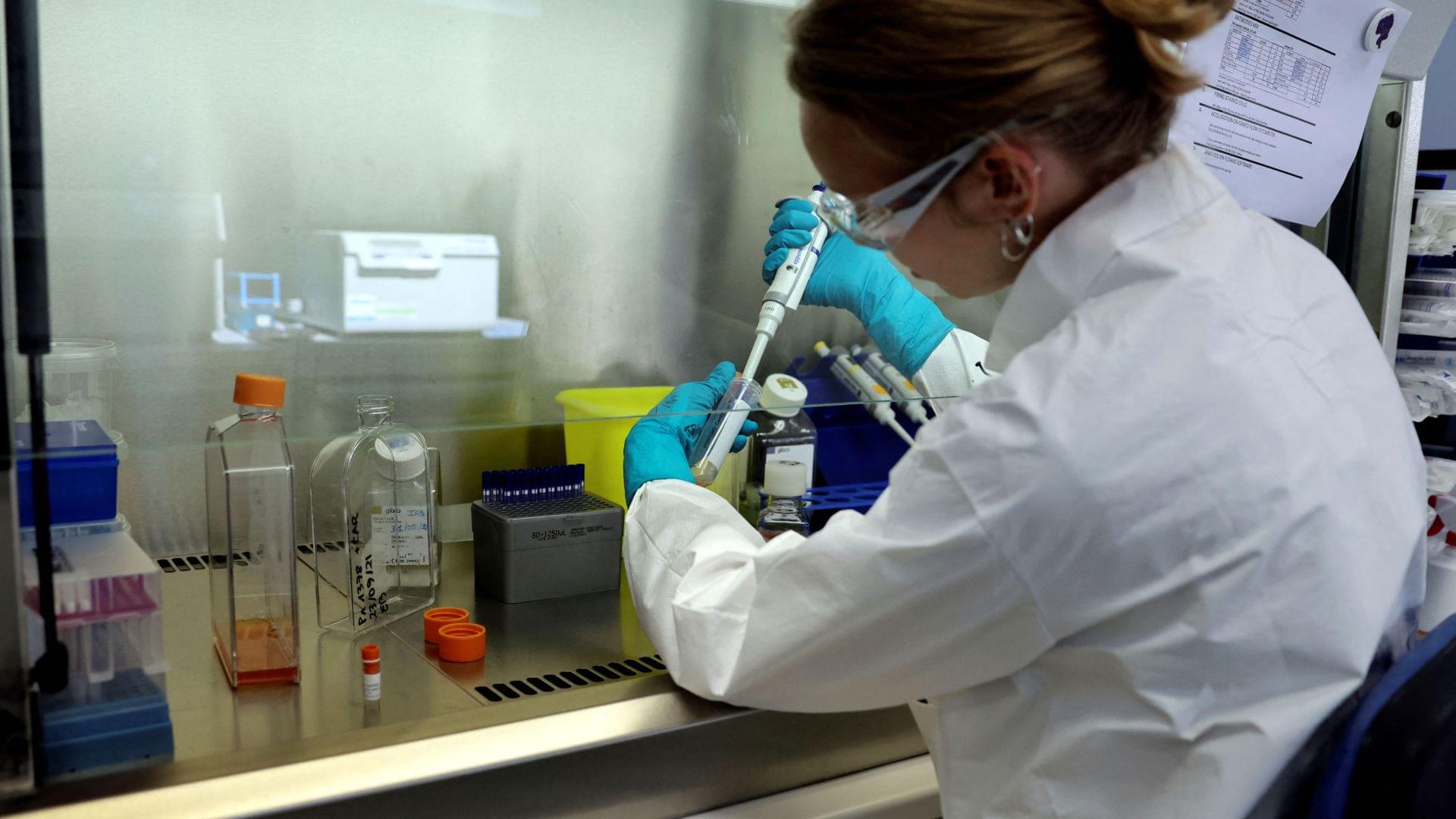


Networks are systems comprised of two or more connected devices, biological organisms or other components, which typically share information with each other. Understanding how information moves between these connected components, also known as nodes, could help to advance research focusing on numerous topics, ranging from artificial intelligence (AI) to neuroscience.
To measure the directional flow of information in systems, scientists typically rely on a mathematical construct known as transfer entropy, which essentially quantifies the rate at which information is transmitted from one node to another. Yet most strategies for calculating transfer entropy developed so far rely on approximations, which significantly limits their accuracy and reliability.
Researchers at AMOLF, a fundamental physics institute in the Netherlands, recently developed a computational algorithm that can precisely quantify transfer entropy in a wide range of complex networks. Their algorithm, introduced in a paper published in Physical Review Letters, opens new exciting possibilities for the study of information transfer in both biological and engineered networks.
Reinforcement learning is terrible — but everything else is worse.
Karpathy’s sharpest takes yet on AGI, RL, and the future of learning.
Andrej Karpathy’s vision of AGI isn’t a bang — it’s a gradient descent through human history.
Karpathy on AGI & Superintelligence.
* AGI won’t be a sudden singularity — it will blend into centuries of steady progress (~2% GDP growth).
* Superintelligence is uncertain and likely gradual, not an instant “explosion.”
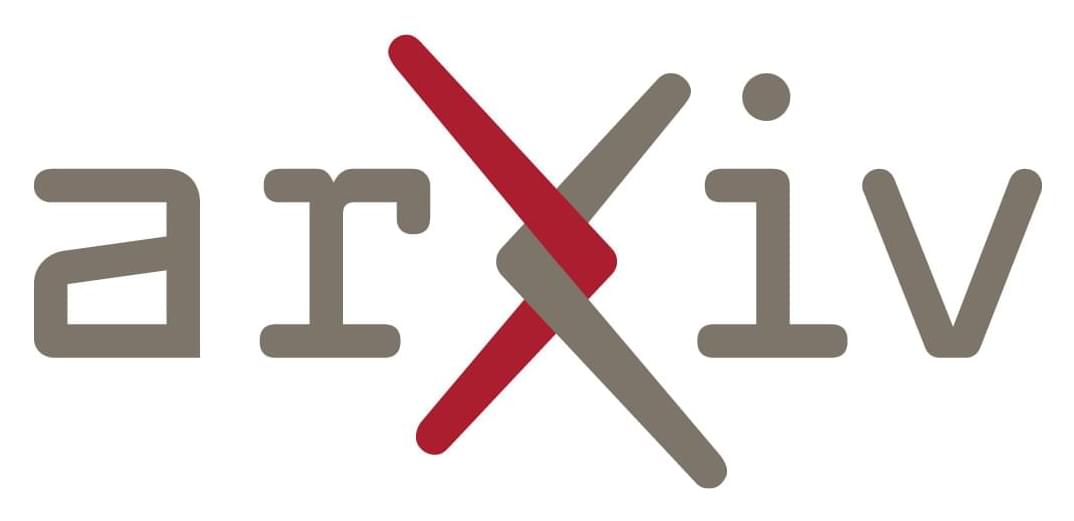
We propose and test the LLM Brain Rot Hypothesis: continual exposure to junk web text induces lasting cognitive decline in large language models (LLMs). To causally isolate data quality, we run controlled experiments on real Twitter/X corpora, constructing junk and reversely controlled datasets via two orthogonal operationalizations: M1 (engagement degree) and M2 (semantic quality), with matched token scale and training operations across conditions. Contrary to the control group, continual pre-training of 4 LLMs on the junk dataset causes non-trivial declines (Hedges’ $g
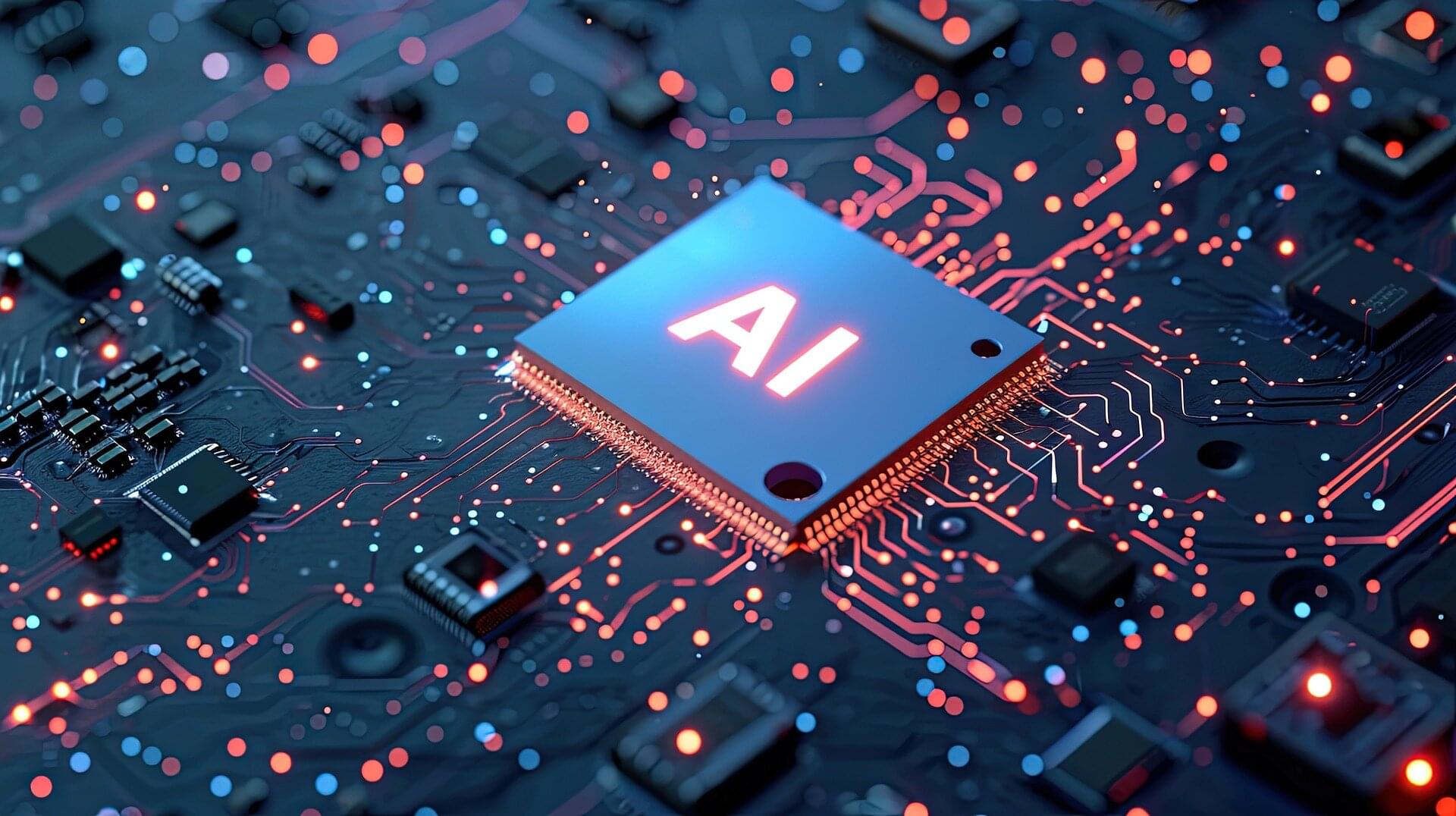
Large language models (LLMs) can store and recall vast quantities of medical information, but their ability to process this information in rational ways remains variable. A new study led by investigators from Mass General Brigham demonstrated a vulnerability in that LLMs are designed to be sycophantic, or excessively helpful and agreeable, which leads them to overwhelmingly fail to appropriately challenge illogical medical queries despite possessing the information necessary to do so.
Findings, published in npj Digital Medicine, demonstrate that targeted training and fine-tuning can improve LLMs’ abilities to respond to illogical prompts accurately.
“As a community, we need to work on training both patients and clinicians to be safe users of LLMs, and a key part of that is going to be bringing to the surface the types of errors that these models make,” said corresponding author Danielle Bitterman, MD, a faculty member in the Artificial Intelligence in Medicine (AIM) Program and Clinical Lead for Data Science/AI at Mass General Brigham.

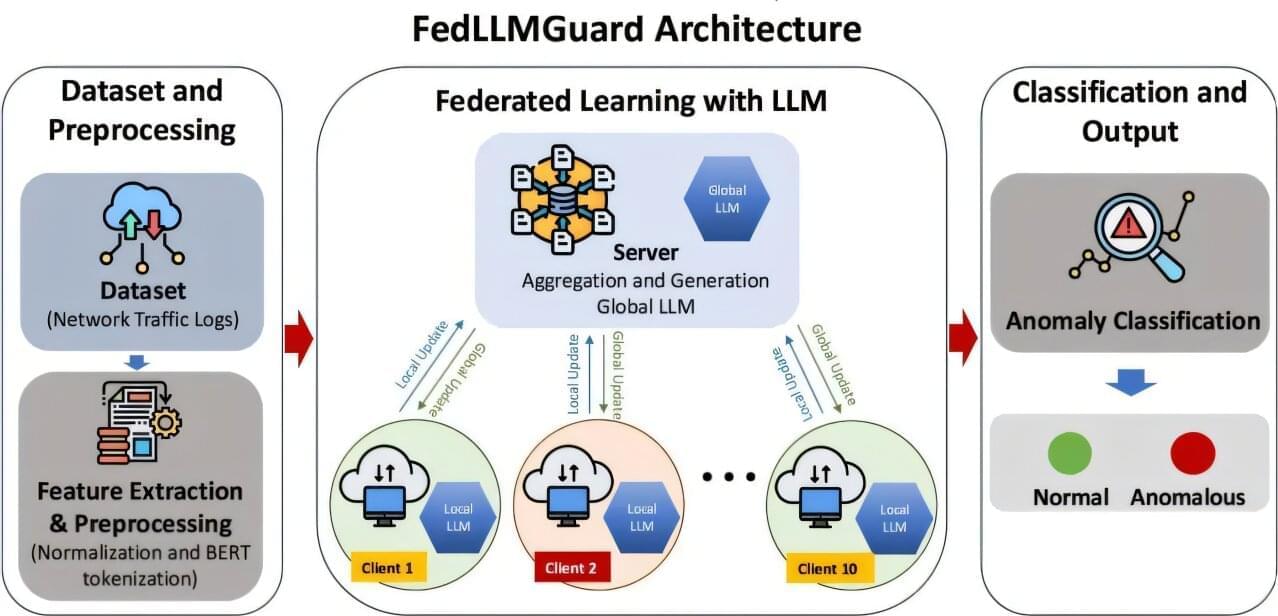
A framework for building tighter security into 5G wireless communications has been created by a Ph.D. student working with the University of Portsmouth’s Artificial Intelligence and Data Center.
With its greater network capacity and ability to rapidly transmit huge amounts of information from one device to another, 5G is a critical component of intelligent systems and services—including those for health care and financial services.
However, the dynamic nature of 5G networks, the high volumes of data shared and the ever changing types of information transmitted means that these networks are extremely vulnerable to cyber threats and increasing risks of attack.
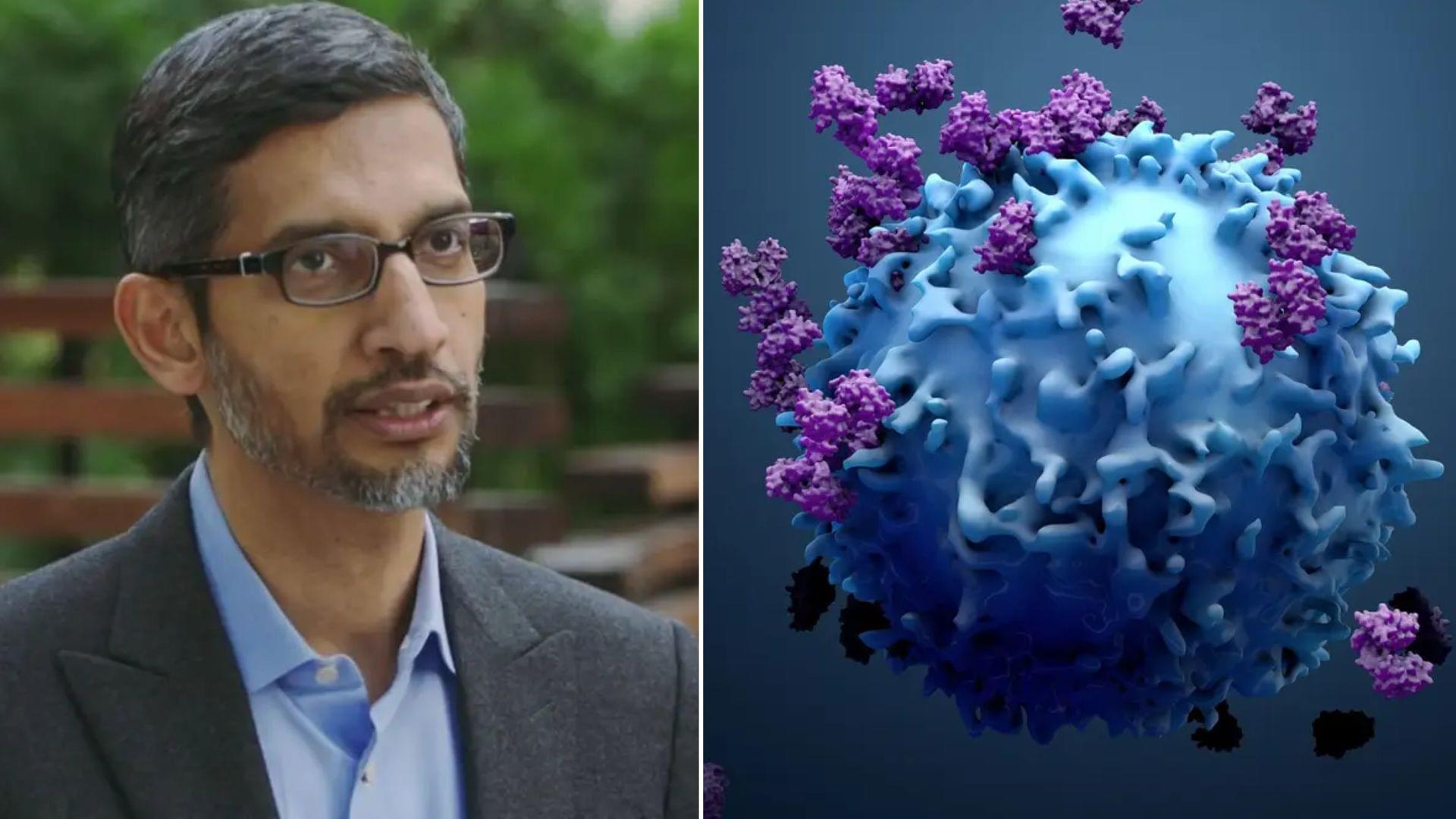
In a major leap for cancer research, Google DeepMind and Yale University have unveiled an artificial intelligence system capable of uncovering new biological insights directly validated in living cells.
Announced on October 15, the new foundation model, C2S-Scale 27B, represents one of the largest and most sophisticated AI systems ever developed to study cellular behavior.
Built on Google’s Gemma family of models, it has generated a groundbreaking hypothesis about how cancer cells interact with the immune system—one that could reshape how future therapies are designed.
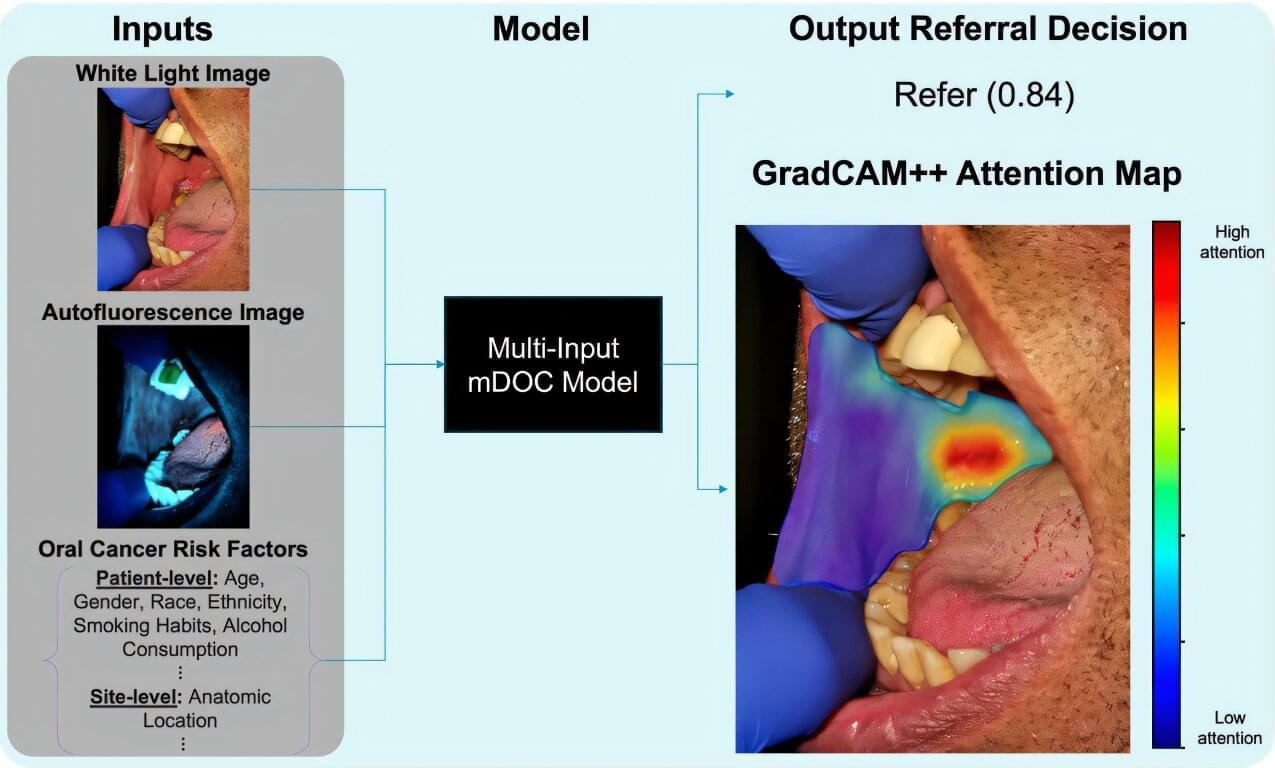
Oral cancer remains a serious health concern, often diagnosed too late for effective treatment, even though the mouth is easily accessible for routine examination. Dentists and dental hygienists are frequently the first to spot suspicious lesions, but many lack the specialized training to distinguish between benign and potentially malignant conditions.
To address this gap, researchers led by Rebecca Richards-Kortum at Rice University have developed and tested a low-cost, smartphone-based imaging system called mDOC (mobile Detection of Oral Cancer). Their recent study, published in Biophotonics Discovery, evaluates how well this system can help dental professionals decide when to refer patients to oral cancer specialists.
The mDOC device combines white light and autofluorescence imaging with machine learning to assess oral lesions. Autofluorescence imaging uses blue light to detect changes in tissue fluorescence, which can signal abnormal growth. However, this method alone can be misleading, as benign conditions like inflammation also reduce fluorescence.
Could tiny magnetic objects, that rapidly clump together and instantly fall apart again, one day perform delicate procedures inside the human body? A new study from researchers at the Max Planck Institute for Intelligent Systems in Stuttgart and at ETH Zurich introduces a wireless method to stiffen and relax small structures using magnetic fields, without wires, pumps, or physical contact.
In music, “jamming” refers to the spontaneous gathering of musicians who often improvise without aiming for a predefined outcome. In physics, jamming describes the transition of a material from a fluid-like to a solid-like state—like a traffic jam, where the flow of cars suddenly stops. This transformation can also be triggered on demand, offering a powerful and versatile way to control stiffness for robotic systems.
In most robotic applications, jamming is achieved using vacuum systems that suck air out of flexible enclosures filled with materials such as particles, fibers, or grains. But these systems require pumps, valves, and tubing—making them difficult to miniaturize.